Leigh, D., Watkins, R., & Johnson, R.. (2020). Parsing Science – Undergraduates Formerly in Foster Care. figshare. https://doi.org/10.6084/m9.figshare.11872152
Royel Johnson: There’s a lot that we can learn from those who do succeed, and defy the odds, and understanding students who have garnered success.
Doug Leigh: This is Parsing Science: the unpublished stories behind the world’s most compelling science, as told by the researchers themselves. I’m Doug Leigh.
Ryan Watkins: And I’m Ryan Watkins. Today in episode 68 of Parsing Science, we’re joined by Royel Johnson from the Pennsylvania State University’s Department of Education Policy Studies. He’ll talk with us about his research into the success of undergraduate youth formerly in foster care, a historically underserved student population. Here’s Royel Johnson.
Johnson: Hi, I’m Royel Johnson assistant professor of Education in African-American studies at Pennsylvania State University. I’m also research associate in the Center for the Study of Higher Education. Originally from Chicago; went to the University of Illinois at Urbana-Champaign with an interest in becoming an attorney, believe it or not. I majored in political science and by the end of my senior year – I was one of those overly involved students who did not take the time needed to really get a competitive score on the LSAT and secure admissions to the kind of schools that I really wanted to go to. So I was a bit frustrated about what my professional future would look like. But, at the time, I studied with a group of graduate students who were all education policy majors. And I was sharing with them at one of our study sessions about my frustrations about my professional career, and where I was going to be going. I was nearing graduation at the time and still had not figured out what I was going to do. And they express that I had some … I seem to have some curiosity around education policy, given my interest in political science. So I literally applied to University of Illinois within a week of the application deadline, was accepted several weeks later fully funded, and that was my entrée into education policy. Did two years in the education policy program and, by the end of the first year, I recognized that I was more interested in higher education policy. Transferred to Ohio State, graduated in 2015 with a PhD in Higher Education and Student Affairs with a particular focus on race and social policy. Stayed for an additional two years in a postdoctoral position. And Penn State was the first job that gave me an interview; moved very quickly to an offer, and rest is history.
Leigh: Royel carries out interdisciplinary research related to educational access, equity, and student success, as well as the influence of race, education, and social policy on these issues. Given the multiple intersections among these matters, Ryan and I began our conversation by asking what got them interested in studying youth formerly in foster care as an underserved population in higher education.
Interest in undergraduate youth formerly in foster care
Johnson: I see myself as an interdisciplinary scholar. Obviously I’m an educational researcher by training, but I’m really committed to bringing to bear diverse methodologies and diversity theoretical perspectives to answer important questions in higher education in particular. And part of my commitment is based on the idea that some problems in higher education are so wicked that it requires multiple stakeholders at the table, multiple theoretical perspectives; they defy singular approaches or solutions. And so, as I do work around issues related to college access and student success, I became even more curious about those populations that are not always represented or deemed college material. And youth in foster care was one of those populations that struck me as one that was overlooked in the higher education literature.
So, I think there’s somewhat over 430,000 youth in foster care system. Only about 50% of them graduate from high school. Of that 50% less than 20% enroll in college, and somewhere between 5 to 10 percent of them graduate from college. And this has been public knowledge for decades now. But when you think about some of the national discourse in higher education as it relates to student success, we’ve prioritized other underserved populations – whether it be students who are racially minoritized, students who identify as first generation, students who are differently abled – have all been populations that we’ve prioritized. But youth in foster care – who cut across these identities at really disproportionate rates – we never hear much about them in these conversations. And so it made me curious about – or interested in – developing another study that would specifically focus on those populations whose experiences are constrained by their mere location, and their structure, instead of policies that exacerbate inequities for them. And so that’s how I began to … well, how I became interested in that particular population. So in my work, I’ve been trying to bring light to some of the experiences and challenges they face as relates to accessing and succeeding in higher education.
[ Back to topics ]
Person-first language
Watkins: In his article, Royel writes that the decision to use the phrase “youth formerly in foster care” rather than “former foster care youth” is deliberate and reflective of a commitment to using person-first language. So we were interested in learning how the words and labels we use to describe youth affected by the foster care system – and the order of those words – can conjure imagery and describe different meanings, both positive and negative.
Johnson: I have tried to be person-first centered in the language that I use, just recognizing that foster care is a situation. It’s a predicament that youth are placed in, it’s not a fixed identity. And so, I just wanted to lead with these are youth, these are kids, versus thinking about the foster care system. Because typically, when you say “foster care” it sort of denotes, or makes people think about, youth who are rowdy. Youth who are sort of incorrigible, who are prone to be delinquent. And in the justice system there are a lot of negative stereotypes and misconceptions about youth who’ve been impacted by the foster care system. So I think it’s important to lead with these are kids. These are youth.
Unfortunately, so many of them have been placed into the situation. And I think we also forget that, by definition, youth who are placed in the foster care system have experienced some form of maltreatment and abuse. And so, when we think about that, it makes us have the think about us having a responsibility to this particular population, versus these are adults who are exercising, you know, decisions to be engaged in sets of anti-social activities or something. But rather, these are youth who are – by no fault of their own – are placed into this predicament. And the language that we use, and how we use that language, has implications for what we’re thought to think of when we say that name, and what it conjures and people’s minds. So there’s some unlearning that we have to do about particular groups.
[ Back to topics ]
The study’s research questions
Leigh: We transitioned into his study by asking Royel to summarize his research questions regarding undergraduate youth formerly in foster care, as well as how we arrived at those questions.
Johnson: The first question was: just what is the state of research and this topic? And I wanted to pay particular attention to theoretical and methodological considerations. How researchers were taking up this work. Second, I wanted to understand what factors were associated with youth and foster care success in college context. So, there was another systematic review from another researcher who had done some work around pre-college factors, and experiences of students in high school and K12. And so I wanted to extend research by focusing specifically on the post-secondary education context. And … with attention to some of the factors that were salient in their success. So, I took a ecological approach to this study, recognizing that all populations navigate and negotiate multiple environmental contexts at any given time. So, recognizing that though those students may be in college, they’re also simultaneously immersed in their family context and their community context as well. And so, I wanted to broaden the aperture a bit; take stock of those factors that could also potentially influence the success of youth in foster care and college as well.
[ Back to topics ]
What systematic reviews entail
Watkins: Along with other “study of studies” such as meta-analyses, systematic reviews are often considered a gold standard of academic research in that they aggregate the results of previous research. In Royel’s study, this involved his synthesis of 46 prior studies spanning various fields such as higher education, student affairs, social work, and child and family studies. As neither Doug nor I have used the technique in our own research, we were curious to learn what systematic review entails.
Johnson: So, I should preface this by saying the prior to doing a systematic review I had no knowledge about systematic reviews. So this was a learning process for me as well. And so, in my search to learn more about systematic review as a method, I came across this book by Petticrew and Roberts that really laid out – in layman terms, in ways that was very instructive – of how to do a systematic review and why it was important. And so they outline a very easy set of recommendations and steps for taking action and doing a systematic review.
One was spelling out very clearly the search procedures. And they offer some templates and guidance for how to do this. But one, defining the timeline for the systematic review. What are the dates? Second, thinking about what are the academic databases, that I’m going to use to search, that are most relevant to the study. Third is identifying very clearly the combination of keywords that you will use. So for me, you know, I defined words like foster youth, foster youth alumni, because that’s another term that we use. So, thinking about all of the combination of terms – and the nuances and differences – that exist among those terms. To really maximize the yield of studies. From there, extracting the data from the databases that you pull. So, from your initial searches, how many studies do you initially identify? And then what relevant information will you pull from those studies to be able to think about what studies – from the screening process – will actually be included? The next step is also making sure that you have very clear inclusion and exclusion criteria. So what differentiates a study that’s included, and a study that is not included? So it requires you to be a bit focused, and what this sort of research question you have is. And having a set of exclusion criteria for why those studies don’t fit that. From there, they recommend doing a critical appraisal and quality check. And so, this is where you’re really reading the studies for their quality, their contribution, and whether or not they’re really just methodologically and theoretically sound. And then, from there, there are multiple steps for analysis. Some people do more thematic analysis, where they’re trying to pull together theme. And other folks do different things, but for me – because I had a conceptual framework – that provided the scaffolding necessary for the organization and analysis of the findings from those studies.
[ Back to topics ]
Rendón’s Student Success Model
Leigh: A theoretical framework is a set of related concepts or propositions about social phenomena that either help explain the relationship between a set of concepts, or predict an outcome. The framework Royel chose is lens for interpreting his findings, was Laura Rendón Student Success Model. So we asked him to tell us more about Rendón and her model.
Johnson: Laura Rendón is a professor emeritus, now, in higher education. She spent most of her career at the University of Texas San Antonio, I believe. UTSA. And, as a scholar who’s really pushed research around college student success and retention – and has critiqued a lot of the traditional college success sort of frameworks that are, in her words, sort of theoretically or culturally vacant. That they don’t take into account the diversity and students experiences – and the cultural experiences in particular – and how that plays a role in student success. So one dominant framework in higher education is Tinto’s Retention Model. And part of the rationale for that model – or one of the core arguments of the model – is that students must integrate academically and socially within their environment of higher education, and really be a success and be retained. Now, many scholars of color, in particular, have critiqued that, recognizing that that’s a form of cultural suicide: for students to integrate into a predominantly white environment, in particular, where the cultural norms and expectations may be different from their own cultural backgrounds. And in many cases, hostile to their cultural identities and experiences. And so, many scholars have pushed back against that sort of canon, to say that, “No, we need to also be thinking about students’ unique cultural backgrounds experiences, and how that plays a role in their matriculation through college.” So, I drew on Laura Rendón’s Student Success Model that just, sort of, acknowledges that there’s diversity that exists among students, and we need to take into account the multiple environments and contexts that they navigate simultaneously as their matriculating through college.
[ Back to topics ]
Individual, family, community, and institution factors
Watkins: In his article, Royel categorizes the findings of his systematic review across four levels: individual, family, community, and institution factors. Here’s what he had to say about what he found regarding the factors that are associated with the academic success of undergraduate youth formerly in foster care.
Johnson: So I started off with individual factors: race, ethnicity, and gender. Surprisingly, [race] was a really overlooked factor, and that’s surprising because there’s racial disproportionality that exist in the foster care system. Students from – who identify as Native American and African American – are the most disparately impacted by the foster care system. Yet, we see an inattention to that in the research. Gender was also associated with college success. And women tended to outperform men in the sample of studies that were reviewed. But women also were most disparately impacted by teen pregnancy, obviously, and issues associated with parenting responsibility. Another set of individual level factors related to intrinsic characteristics. I sort of define these as those that are sort of internal aspects or characteristics, and there were a wide range of internal characteristics that were shown consistently across the studies to be related to success in college. Things like goal orientation, resourcefulness, students who had a high sense of autonomy, or sense of competence. Likewise, the reverse was also true students who didn’t have – or possess these sort of characteristics – were less likely to be successful within college. And then, finally, mental health challenges were significant among the students in the samples across the studies that were reviewed. Things related to depression, anxiety, and, interestingly: post-traumatic stress disorder. If you think about the trauma associated with placement in the foster care system, as well as the trauma that is sometimes experienced by – really negative experiences while in foster care – many of these things were associated with disengagement and low conceptions of self, which are obviously negatively related to college success. The second set of factors related to family. And there were to sort of two sub-themes from there. One related to family relationships and support: relationships with biological families were cited almost consistently across so many of the studies as a major stressor for academic success, or success of youth in foster care in college. And for so many students who have been impacted by the foster care system, your biological family sometimes is a stressor. So many of the students who I talked to in my research talk about their biological families as a significant negative influence on their education and matriculation. But also, another set of factors are related to parenting responsibilities. So many women who’ve been impacted by the foster care system experience teen pregnancy at high rates. And so responsibilities associated with parenting was a negative factor related to success for students in college.
[ Back to topics ]
Social networks and collegiate policies and practices
Leigh: We’ll hear what Royel found with regard to the factors related to students social networks and the policies and practices of colleges after this short break.
ad: Altmetric.com
Leigh: Here again is Royel Johnson.
Johnson: So the third bin is around community factors. I focus specifically on supportive relationships. So, so many of the students in the studies cite connections to folks beyond their family, whether it be caseworkers, or social workers who they met through their time in the foster care system. Clergy members. So, recognizing that family is not always the primary set of social support students benefit from. Students in the studies that I reviewed relied on a more comprehensive network of social support beyond family. And then second was around community programs and policies, as well. So different involvements in organizations and so forth were also cited as a positive factor related to success.
And then, finally, the last set of factors focused on the post-secondary education context. First, students who’ve been in the foster care system experienced enormous marginalization within the college context. And much of this stems from their identity as a quote-unquote foster youth, and the negative stereotypes – low expectations – that we sometimes place on those who have been involved in foster care. So there was a social isolation that many experienced on campus. And some of the policies and practices that we have in higher education help exacerbate those feelings of marginalization. Whether it be family weekends that we label, you know, “Mom Weekend” or “Dad Weekend.” What does that mean for youth who don’t have relationships with those parents? And so I think we have to be little bit more intentional there. Second was college support programs. Many of the students in the studies really benefitted from programs that offer them targeted information about college access and support. Whether it be TRIO programs that are funded by the federal government, or programs that have been designed specifically to meet the needs of youth in foster care. Those were really significant and instrumental in the success of students in college. The other set of factors related to basic needs insecurities. So, so many of the students in the studies experience challenges just meeting their basic needs. Whether it’s access to healthcare, access to transportation and resources to be able to carry out the things that they need to do in life. Just basic sort of essential things many of them struggle with. However, having a significant social support network helped mitigate some of those challenges, as well. And I talked about little bit of it in the study. And then finally, I just sort of organize what we know from research about some of the disparities in college completion and beyond. As you can imagine we see significant differences in retention and graduation for youth who have experiences in the foster care system, versus those who do not. And then those sort of challenges extend beyond college to the workforce. So, in some of the early studies that were included in the review, we also did see disparities in entry into the workforce as well.
[ Back to topics ]
Analyzing studies from multiple research paradigms
Watkins: One of the things that makes Royel’s systematic review stand out among others that Doug and I have encountered is that it includes broad range of research perspectives and paradigms, including both qualitative and quantitative studies, as well as those using multiple and mixed methods. As this must have been a challenging undertaking, Doug and I were interested in hearing about his experience with doing so.
Johnson: Yes, it was very difficult, but it was a commitment that I have from my own epistemology recognizing that, you know, knowledge is constructed in so many different ways. And I didn’t want to prioritize quantitative studies over qualitative studies or vice versa. And recognizing that both statistics and descriptive data is also useful coupled – and perhaps more provocative – when paired with narrative and stories from youth as well. So it was important for me to bridge those methodological divides in order to really offer more accurate or contextualized picture of what we knew from research. But it was difficult, specifically in trying to prioritize what information from the studies would I include, and how much detail. Obviously, with limited space and traditional journal article manuscript, you have very limited space to go as in-depth. So I had to make some decisions. And then, in that, you lose a degree of context from the study. So I tried my best to bridge the statistics and descriptive data to include also the narrative and the quotes that were just as powerful.
[ Back to topics ]
Anti-deficit (i.e., asset-based) framing of research
Leigh: Royel’s article concludes with the recommendation that feature researchers employ an anti-deficit framework for thinking about or reframing questions when examining the experiences of undergraduate youth formerly in foster care. For instance, rather than studying how negative stereotypes about youth in foster care can affect their academic performance and engagement at school, an anti-deficit approach might aim to understand how students negotiate and resist such stereotypes and persist in spite of them. So we finished our conversation by asking what work he believes can be done to further investigate the factors that stand to success of historically underserved populations.
Johnson: So I specifically mentioned Shaun Harper‘s anti-deficit framework. And part of his work in this area developed in his research on Black men in higher education, recognizing that so many of the questions that we asked about that particular group painted a really doom and gloom perspective about their experiences and outcomes in higher education, in particular. And that our questions were so deficit-laden, and focused on understanding how they navigated these really horrible situation or predicament that they’ve been placed in. And also see the outcomes and experiences of students as a result of their own disinterest in higher education. So we … you know in his work, he talked about the quote-unquote Black Male Crisis, and that’s so much of that been attributed to really negative perspectives and stereotypes about Black men in society that shape the kinds of questions that we were asking in research, as well. But recognizing that there’s a lot we can learn from those who do succeed and defy the odds, and understanding students who have garnered success. What were the factors that helped enable their success? What resources that they draw on, versus just what are the factors that explain their negative outcomes? And so trying to offer a more balanced perspective. And I think it’s most salient with this particular group given that there’s so many negative stereotypes around youth who been placed in foster care – that do in fact shape perceptions of people who work in higher education, in particular, who interact with them. And so, part of taking a asset-based approach is: one, not seeing foster care placement as a fixed identity: again, using person-first language and so forth. But also inattention to the resources and resilience that so many underserved populations like youth in foster care experience, you know. So many of the students in the studies that I reviewed talk specifically about being motivated to succeed because of their negative situations that they’ve experienced in the foster care system. So I’m working with a group of scholars who are in social work, higher education, and other areas to put on the first national convening around youth in foster care and higher education. That’s going to happen in February in DC. And it’s an opportunity where we’re bringing together both scholars and practitioners to develop collaborative research teams and agendas to produce the next wave of research, and hopefully inform practice.
[ Back to topics ]
Links to article, bonus audio and other materials
Watkins: That was Royel Johnson discussing his article “The state of research on undergraduate youth formerly in foster care: A systematic review of the literature,” which he published on June 28, 2019 in the Journal of Diversity in Higher Education. You’ll find a link to his paper at parsingscience.org/e68, along with transcripts, bonus audio, and other materials we discussed during the episode.
Leigh: If you’re new to Parsing Science or just missed a few of our recent episodes, then check us out at parsingscience.org to hear our entire catalog. There you’ll find our talk with our previous guest, Temple Grandin, who spoke with us about improving the well-being of livestock, as well as the episode before hers, in which we spoke with Katherine Wood about how people tend to notice unexpected objects quickly, or not at all.
[ Back to topics ]
Preview of next episode
Watkins: Next time in episode 69 of Parsing Science, we’ll be joined by Trevor Wardill from the Department of Ecology, Evolution and Behavior at the University of Minnesota. He’ll talk with us about his research into the hitherto unknown ability of cuttlefish to see in stereo vision: a trait which he identified by having them wear 3D glasses.
Wardill: If I Super Glue on a piece of Velcro, then the glasses could be attached with the Velcro, but equally the cuttlefish could take it’s glasses off if it just didn’t like it. And that, you know was a really good idea in hindsight. Because, yes, as you might guess, some cuttlefish – when you put glasses on their head – don’t want to wear them, and just take them off.
Watkins: We hope that you will join us again.
[ Back to topics ]

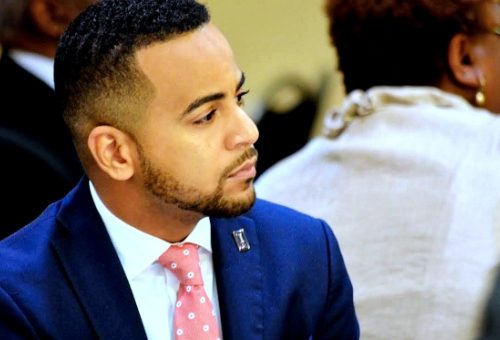



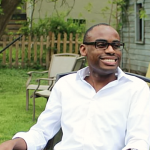
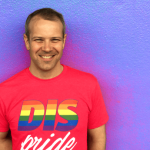
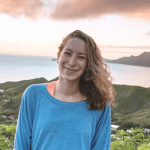
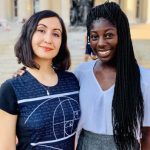

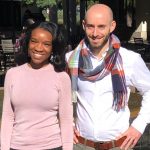
Next time, in episode 69 of Parsing Science, we’ll be joined by Trevor Wardill from the Department of Ecology, Evolution and Behavior at the University of Minnesota. He’ll talk with us about his research into the hitherto-unknown ability of cuttlefish to see in stereo vision, a trait which he identified by having them wear 3D glasses.@rwatkins says:
Royel's article concludes with the recommendation that future researchers employ an "anti-deficit" framework for thinking about or reframing questions when examining the experiences of undergraduate youth formerly in foster care. For instance, rather than solely studying how negative stereotypes about youth in foster care can affect their academic performance and engagement in school, an anti-deficit approach might aim to understand how students negotiate and resist such stereotypes and persist ... in spite of them. So we finished our conversation by asking what work he believes can be done to further investigate the factors that stand to enhance the success of historically underserved populations.@rwatkins says:
One of the things that makes Royel's systematic review stand out among others that [Ryan/Doug] and I have encountered is that it includes a broad range of research perspectives and paradigms, including both qualitative and quantitative studies, as well as those using multiple- and mixed-methods. As this must have been a challenging undertaking, Doug and I were interested in hearing about his experience with doing so.@rwatkins says:
We'll hear what Royel found with regard to the factors related to students' social networks and policies and practices of colleges after this short break.@rwatkins says:
In his article, Royel categorizes the findings of his systematic review across four levels: individual, family, community, and institution factors. Here's what he had to say about what he about regarding the factors that are associated with the academic success of undergraduate youth formerly in foster care.@rwatkins says:
A theoretical framework is a set of related concepts or propositions about social phenomena that either help explain the relationships between a set of concepts, or predict an outcome. The framework Royel chose as a lens for interpreting his findings was Laura Rendón's Student Success Model. So we asked him to tell us more about Rendón and her model.@rwatkins says:
Along with other "study of studies" such as meta-analyses, systematic reviews are often considered a "gold standard" of academic research in that they aggregate the results of previous research. In Royel's study, this involved his synthesis of 46 prior studies spanning various fields, such as higher education, student affairs, social work, and child and family studies. As neither Doug nor I have used the technique in our own research, we were curious to learn what systematic review entails.@rwatkins says:
Next, we transitioned into his study by asking Royel to summarize his research questions regarding undergraduate youth formerly in foster care, as well as how he arrived at those questions.@rwatkins says:
In his article, Royel writes that the decision to use the phrase "youth formerly in foster care" rather than "former foster care youth" is deliberate and reflective of a commitment to using "person-first" language. So we were interested in learning how the words and labels we use to describe youth affected by the foster care system - and the order of those words - can conjure imagery and ascribe different meanings, both positive and negative.@rwatkins says:
Royel carries out interdisciplinary research related to educational access, equity, and student success ... as well as the influence of race, education, and social policy on these issues. Given the multiple intersections among these matters, Ryan and I began our conversation by asking what got him interested in studying youth formerly in foster care as an underserved population in higher education.